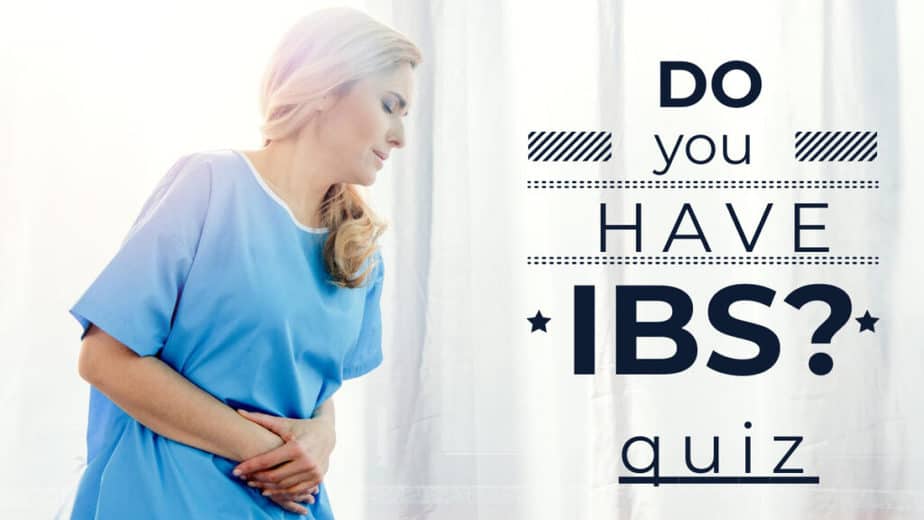Links between gastrointestinal diseases, such as irritable bowel syndrome (IBS), and skin health have long been considered. There’s new research potentially providing a clearer connection between IBS and Acne.
The effects of IBS can often be much more wide-reaching than an uncomfortable gut. As well as causing stomach and abdominal pain, IBS can lead to a lack of energy, an increase in stress, and a general feeling of poor wellbeing. In some cases, IBS can feel like a strain on the entire body.
It is possible that IBS is having an effect on more of the body than you realized, both inside and on the surface.
In this guide, we’ll investigate the relationship between IBS and acne, and consider how treating one issue may help the other.
Investigating the IBS and Acne Relationship
Anecdotal evidence for a link between IBS and acne has long been suggested. As we know, an imbalance in the gut can have severe health implications throughout the body – this relationship has often been assumed.
However, we’re always discovering new things about the body. IBS is a complicated condition, with often unclear causes and various physical effects. Uncovering a link between IBS and acne isn’t as clear-cut as it might first appear.
A recent study into the relationship between IBS and acne vulgaris had some positive results. 300 patients with acne vulgaris, and a control group of 300, were recruited by the study.
They were then assessed for IBS. The results showed that 183 patients suffered from acne, compared to just 84 members of the control group.
The study also assessed the patient’s GAGS score – global acne grading system – compared to the severity of IBS symptoms. Again, there appears to be a clear link. Those with a higher GAGS score suffered more acutely from IBS.
Potential Limitations of the Study
We’re only really at the start of considering the link between IBS and acne. More studies will be necessary to fully understand the relationship between the two issues. Furthermore, this study had only a small sample group.
Although studies concerning acne and IBS in particular are still lacking, there has been more research into general gut health, and the impact it may have on acne.
Gut Health and Acne
When the microorganisms in our gut are knocked out of balance, we tend to feel it. What you might not be aware of is that it’s possible we can see it as well. It’s thought that there is a relationship between the health of our guts and the presence of acne.
Studies into this area might not be entirely clear about the mechanics of the relationship, but researchers are interested in investigating it further.
What does appear to be clear is that when you suffer from an acne flare-up, the reason might be coming from deep in your gut.
Treating IBS and Acne
A change in diet is often recommended as a treatment for both acne and IBS. Certain food groups can cause flare-ups of both conditions in individuals.
Even if the relationship between IBS and acne isn’t entirely clear, a change in diet can form a major part of treatment in both cases.
Removing Food Groups
Sugar and lactose are both potential triggers for IBS and acne, as are high-glycemic carbohydrates such as white bread and pasta. In some cases, eliminating or reducing these food groups may alleviate acne and IBS.
Speak to your doctor before you remove any food groups, and be sure to use a phased approach. By gradually cutting out foods and slowly bringing them back, you can better understand which foods are having a negative effect.
A low FODMAP diet (foods that are low in fermentable oligosaccharides, disaccharides, monosaccharides, and polyols) can be a fantastic way to properly explore how your body reacts to certain foods, and is often recommended for the treatment of irritable bowel syndome.
Gluten can lead to bloating and diarrhea, two common symptoms of IBS. However, there’s no known link between gluten and acne. Cutting down gluten containing foods often means cutting out high-glycemic carbohydrates, but removing gluten won’t alleviate acne.
- Related Article: Low FODMAP Diet for IBS Relief
Complex Carbohydrates
Removing food groups is a good start, but it’s also important to consider what food groups should form the basis of your diet.
Carbohydrates are seen by many as an enemy of IBS, but eating the right ones can help reduce acne, and improve your gut. Look for complex carbohydrates found in fruit, vegetables, and grains.
Vitamin A
Certain cheeses, vegetables, and meats are high in vitamin A. These foods can reduce inflammation, potentially reducing the risk of an acne flare-up.
Foods that are high in vitamin A are also a necessary part of a good diet. They improve the skin both inside and outside the body.
Zinc
Higher levels of zinc have been shown to reduce the severity of acne. Zinc levels are often high in foods that are good for a low FODMAP diet. Nuts, whole grains, and chickpeas are all good sources of zinc and suitable for a low FODMAP diet.
The Importance of Hydration
Regular water consumption is beneficial to overall health, and particularly useful in alleviating acne and IBS. Common symptoms of IBS include constipation and diarrhea, both of which can affect hydration levels.
Drinking water keeps the skin hydrated, improving its overall health and reducing the potential of an acne breakout.
If you wish to make dietary changes to combat either IBS or acne (or both), then be sure to speak to your doctor first. It’s important with an elimination diet to closely consider your own reactions.
- Related Article: Water Retention and IBS
IBS and Acne Final Thoughts
The relationship between IBS and acne may not be clearly defined just yet, but there is strong evidence to suggest a connection. Studies have shown that those with acne vulgaris are more likely to suffer from IBS than those who don’t.
With both IBS and acne, the diet you choose can have an effect on the severity of the symptoms. Eliminating certain food groups while focusing on building a healthy and well rounded diet is often a good start treatment.
Check out more articles about IBS:


